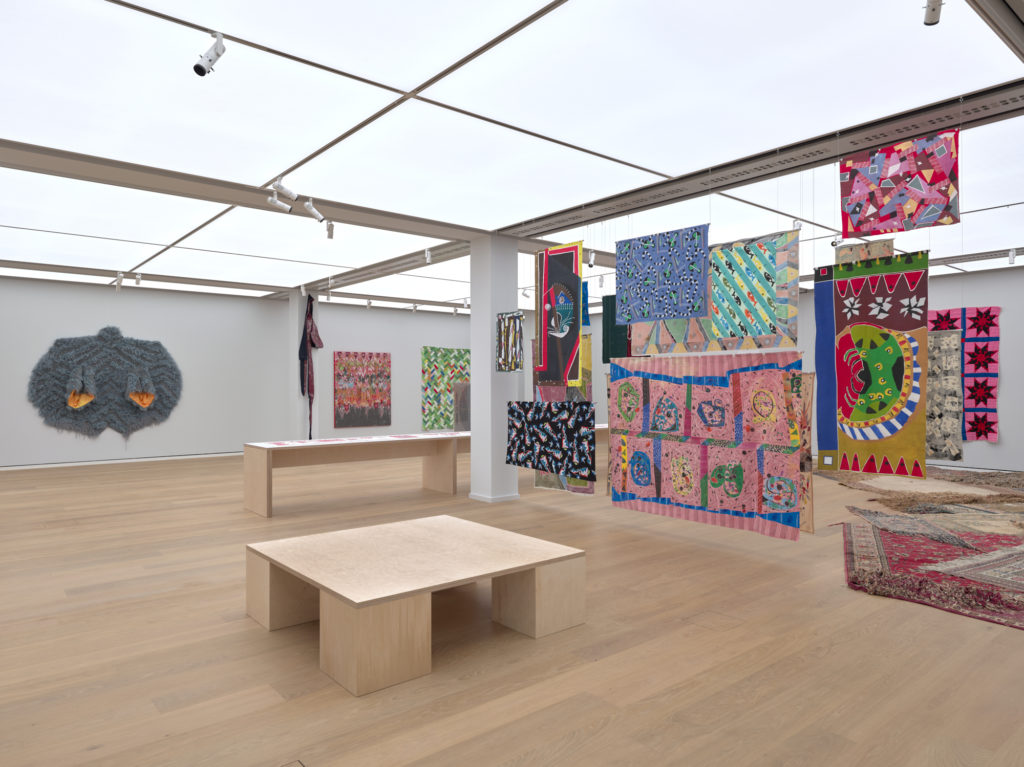
This spring, DAS MINSK Kunsthaus in Potsdam will present the group exhibition Soft Power, which positions textile design as an artistic means of expression that can be employed to question power relations. The exhibition addresses various aspects of textile art in three chapters.
The chapter “Invisible Hands” focuses on the production conditions of textiles and their raw materials, including the history of the Leipzig-Lindenau cotton mill, among other examples. It will demonstrate the interrelation of historical and contemporary production conditions, trade relations, and their enduring ecological implications. “Disrupting Patterns” is the title of the second chapter. Textile patterns are often based on the repetition of graphic structures, which typically originate from long traditions and can convey information about power hierarchies or status. The works presented in this chapter of the exhibition question existing patterns and relationships. The chapter “Ancestral Threads” traces the lines that connect us to the past. Just as individual threads can combine to form fabrics and larger networks, the historical and contemporary works in this chapter refer to past traditions that continue to have an effect today.
Soft Power shows works by Magdalena Abakanowicz, Caroline Achaintre, Wilder Alison, Leonor Antunes, Ouassila Arras, Kevin Beasley, Mariana Chkonia, Edith Dekyndt, Gee’s Bend Quiltmakers (Ella Mae Irby, Candis Mosely Pettway, Quinnie Pettway), Philipp Gufler, William Kentridge, Maria Lai, Joanna Louca, Sandra Mujinga, Gulnur Mukazhanova, Ramona Schacht, Gabriele Stötzer, Johanna Unzueta, Hamid Zénati, and others.
The exhibition will be curated by Daniel Milnes, who has worked as a curator at DAS MINSK since June 2023. Milnes grew up in Leeds, Great Britain, and studied modern languages (German and Russian) in Oxford and art history in Freiburg and St. Petersburg. After completing a traineeship at Kunstmuseum Stuttgart, he was part of the curatorial team at Haus der Kunst in Munich and subsequently at the Hamburger Bahnhof – Nationalgalerie der Gegenwart in Berlin. In 2019, he was part of the curatorial collective that curated the 12th Kaunas Biennial.
